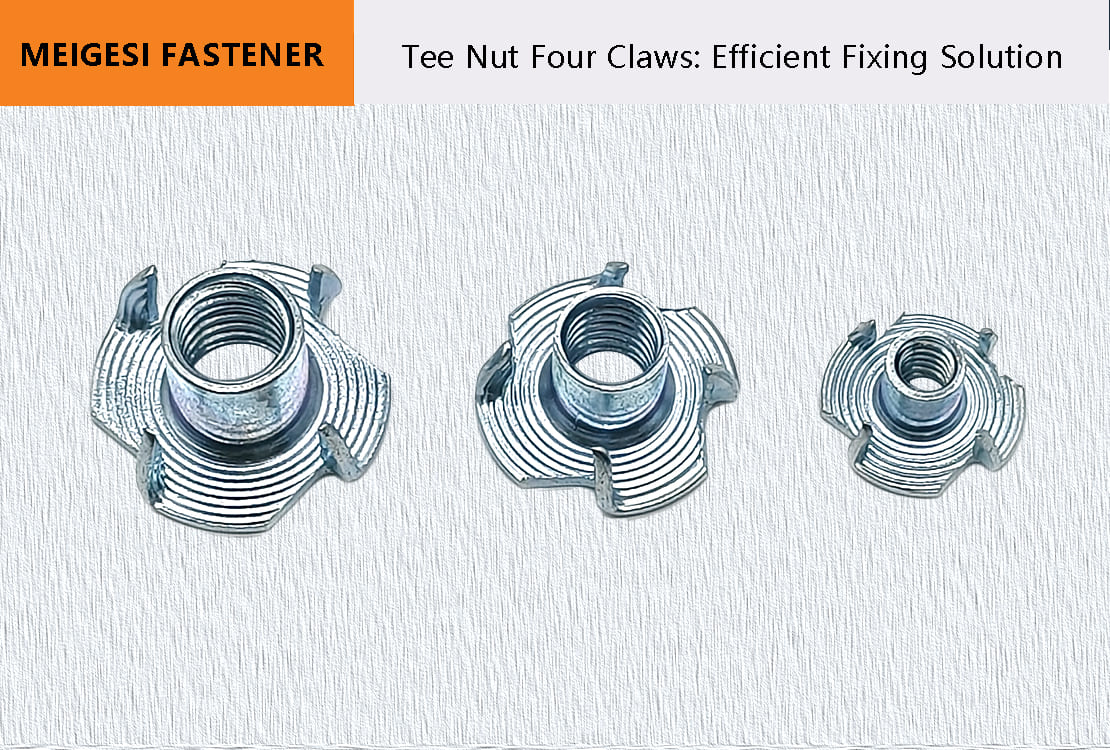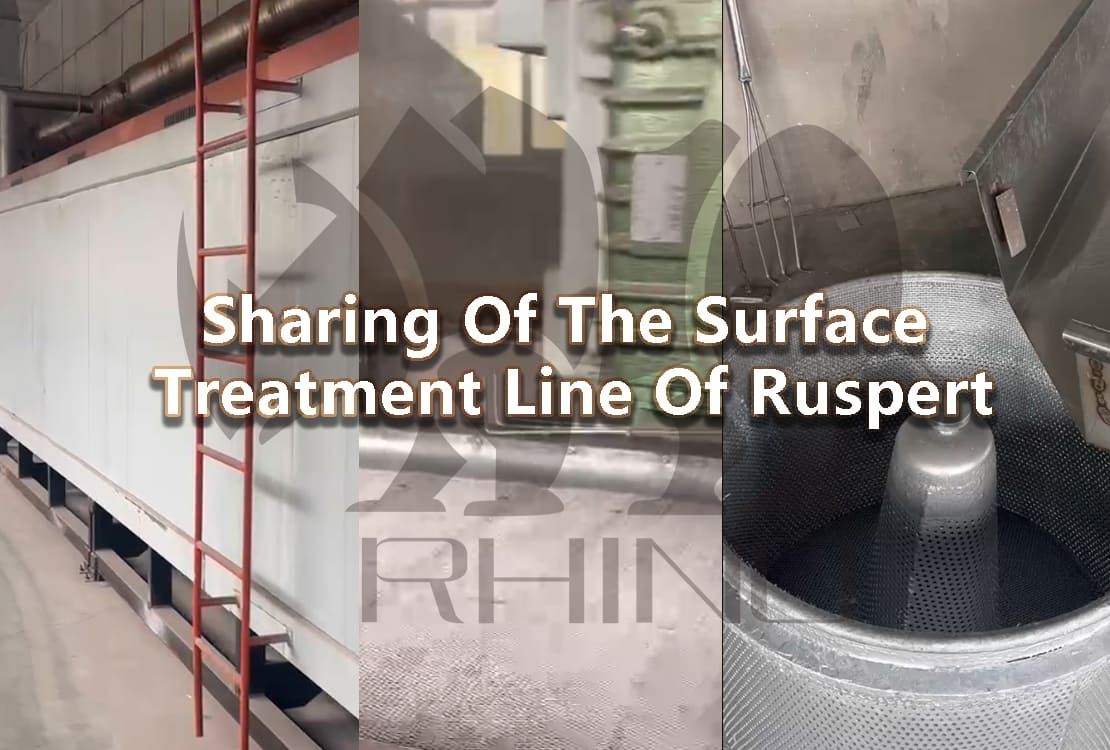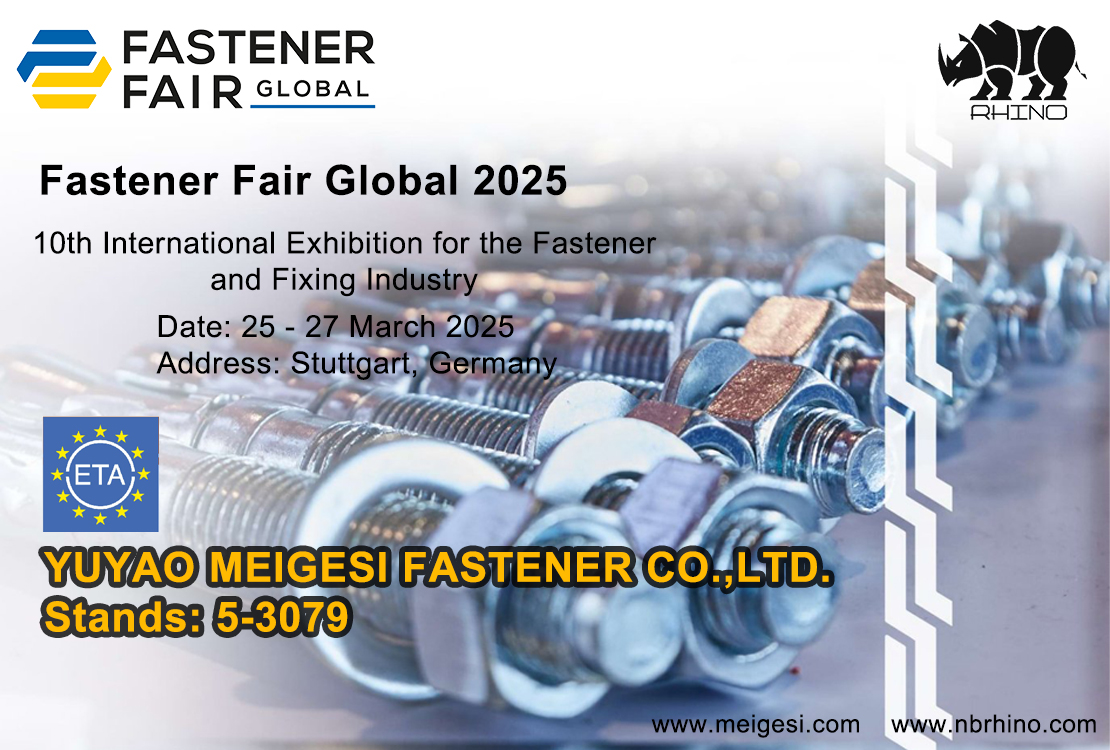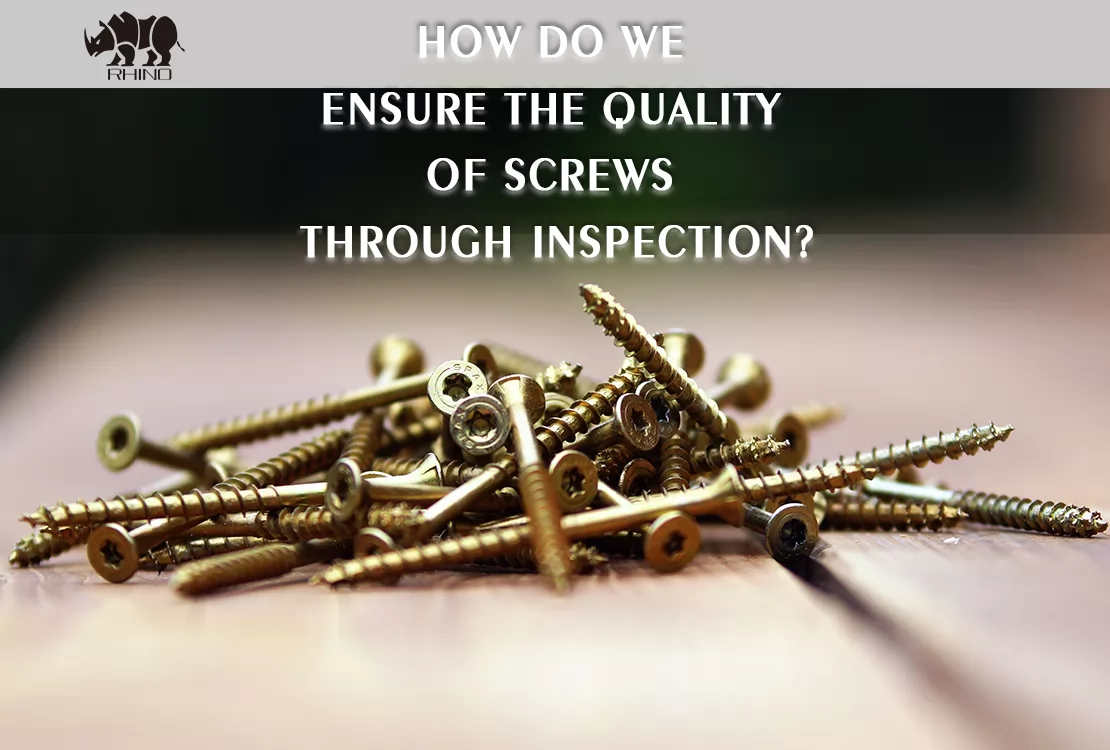
In order to ensure that the produced screws meet customer requirements, the factory will conduct sampling inspections during screw production.
What tests are available?
-
Appearance inspection Appearance inspection is the simplest and most convenient inspection method. By observing the shape, size, surface finish, etc. of the screw, we can judge whether the screw meets the requirements. For size, we can choose to use a caliper to check whether the length, diameter, head and thread size of the screw meet the standards. For threads, we choose to check the accuracy and integrity of the threads to ensure that the shape and size of the threads meet the standards.
The measurement method of screw length and diameter has its own regulations. When measuring the length, place the head of the screw against the fixed measuring surface of the caliper and measure along the axis of the screw, from the head to the tail end. For screws with flat heads or countersunk heads, the measurement should include the length of the entire screw; for screws with semicircular heads or other raised heads, the length does not include the head. When measuring the outer diameter, place the measuring jaws of the caliper on the threads of the screw, gently clamp the screw, so that the measuring jaws touch the threaded part with the largest diameter. The data of this part is the outer diameter of the screw.
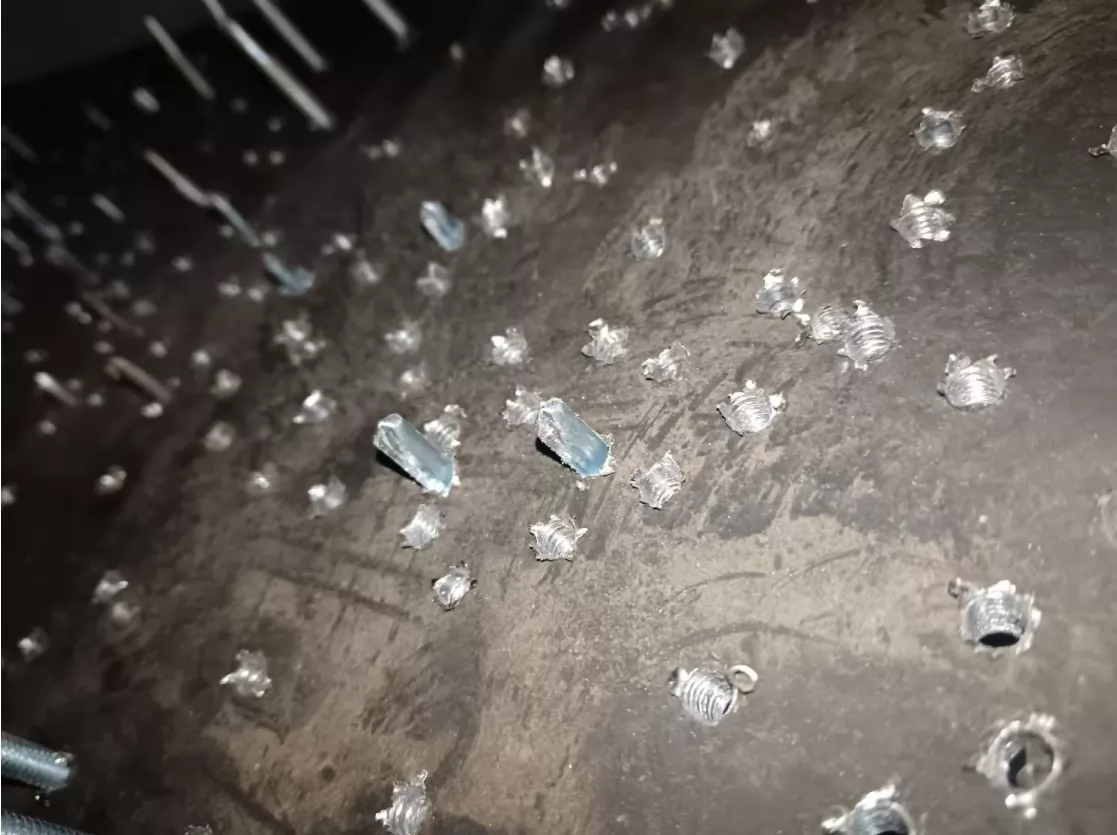
-
Mechanical properties testing
Secondly, the factory will choose mechanical properties testing. Generally, manual drilling or mechanical drilling methods are used to judge the tensile strength, bending strength, shear strength and other mechanical properties of the test screws by the drilling time to ensure that they can withstand the expected load.
-
Material inspection and surface treatment inspection
In some cases, material inspection and surface treatment inspection are also required. We will use professional instruments to confirm the material composition and properties of the screws. We can measure the proportion of the main elements in the material to determine whether the strength of this batch of screws is qualified. If the screws have been surface treated (such as galvanizing, painting, etc.), it is necessary to inspect the quality and uniformity of the surface treatment. Generally, we will use it to check whether the thickness of the galvanized layer meets the standard and whether the surface treatment is uniform.
-
Corrosion-resistant
In addition, for screws that need to be corrosion-resistant, corrosion resistance tests are carried out to ensure their durability in specific environments. Generally, we will conduct salt spray tests and atmospheric exposure tests. The salt spray test simulates the corrosion conditions in the marine environment by placing the sample in a salt spray chamber. During the test, salt spray will be sprayed continuously to cover the surface of the screw with a layer of salt spray to observe its corrosion resistance. After the prescribed time, the sample is taken out and checked for corrosion spots, peeling and other phenomena on its surface. If the sample performs well in the salt spray test, it means that it has excellent corrosion resistance and is suitable for humid or corrosive environments.
The atmospheric exposure test exposes the sample to the natural environment and observes its corrosion for a long time. This method can truly reflect the corrosion resistance of the screw in the actual use environment. During the test, the appearance and performance changes of the sample will be checked regularly, and the corrosion conditions will be recorded. If the sample does not show obvious corrosion or performance degradation during long-term exposure, it means that it has good corrosion resistance.
Inspection records and reports

In order to ensure the reliability and traceability of the test results, the factory usually records the test results of each batch of screws. The record content includes the test items, test methods, test results, test personnel, and test time. These records can not only help the factory control product quality internally, but also provide relevant certificates when customers have needs. In addition, the factory usually generates a test report based on the inspection results. The test report records the specific data and analysis results of each test in detail, and makes a comprehensive evaluation of the test results. If the customer needs it, we can ask our sales staff to provide a copy as a basis for understanding the actual performance and quality of the screws.
Continuous improvement and quality control
In order to continuously improve product quality and meet customer needs, the factory will regularly conduct quality analysis and improvement on the basis of routine testing. Through the analysis of test data, we can find out the problems and weak links in the production process and take corresponding improvement measures. For example, we can improve the production process, optimize the selection of raw materials, strengthen employee training, etc. These measures help to improve product quality and ensure that every screw can meet customer requirements.
About Meigesi Fastener Screw

Meigesi Fasteners has its own screw factory. We produce various head types: Flat Head, Countersunk Head, Pan Head, Wafer Head, Flange Head, etc. We also produce various types of screws, such as: Wooden Screw, Self Tapping & Drilling Screw, Machine Screw, Concrete Screw, Nail Screw, Drywall Screw, etc. Please click on our Screw list to see if there is a screw you are interested in.
Yuyao Meigesi Fastener was established in 2010. It is an export enterprise specializing in the production and sales of fasteners. It mainly exports various types of screws, nuts, bolts and other fasteners. Its products are exported to more than 50 countries including Eastern Europe, Western Europe and South America. Meigesi is based on professionalism, efficiency, integrity and innovation. The company integrates sales and production. After 13 years of operation and development, it enjoys a good reputation in the world fastener industry.






